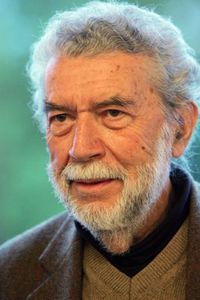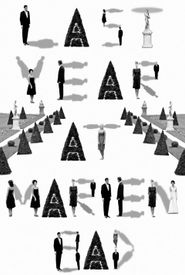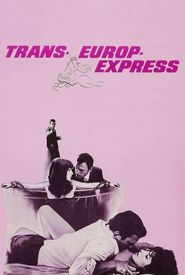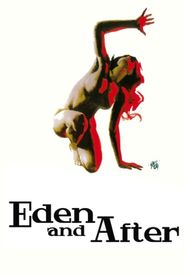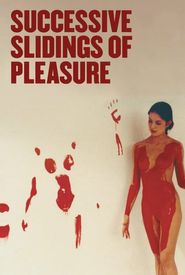Born in Brest, France, in 1922, Alain Robbe-Grillet initially pursued a career in scientific research, graduating from the Paris-based Institut National Agronomique in 1945. He spent several years working in the tropics and in France, before, at the age of 30, deciding to redirect his career towards literature.
Despite initial criticism from prominent literary critics, Robbe-Grillet's novels gained worldwide recognition and a wide readership, earning him a reputation as one of the key figures in the French literary movement known as "Le Nouveau Roman" or "New Novel". His works have been translated into over 30 languages and include notable titles such as "Le Voyeur" (1955),"La jalousie" (1965),"La maison de rendez-vous" (1965),"Project pour une révolution à New York e Djinn" (1981),"Le miroir qui revient" (1985),and "Les Derniers jours de Corinth" (1994).
At the age of 40, Robbe-Grillet embarked on a parallel career as a screenwriter and film director, experimenting with unconventional narrative structures. He collaborated with Alain Resnais to win the "Golden Lion" in Venice in 1961 for "Last Year at Marienbad" (1961) and the Louis Delluc Prize two years later for "L'Immortelle" (1963),which was his first film that he wrote and directed himself.
Robbe-Grillet's subsequent film projects include "Trans-Europ-Express" (1966),"The Man Who Lies" (1968),"Eden and After" (1970),"Successive Slidings of Pleasure" (1974),"Playing with Fire" (1975),"La belle captive" (1983),and "Un bruit qui rend fou" (1995).
Currently, Robbe-Grillet resides in seclusion in the countryside of Normandy, where he tends to his extensive collection of cacti. He continues to travel the world and teach modern literature and film to graduate students in several American universities.
